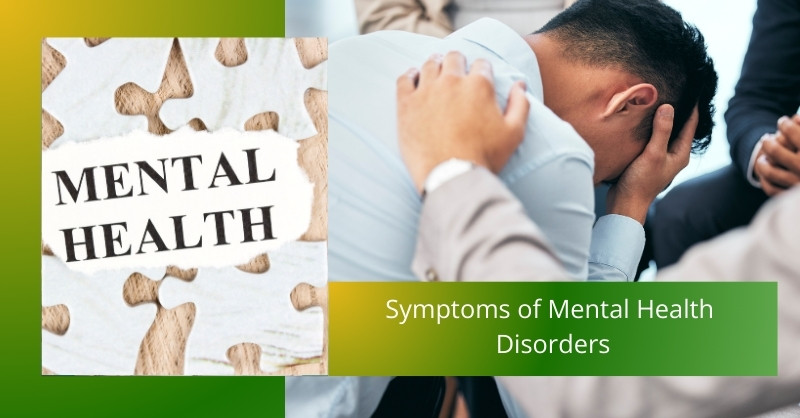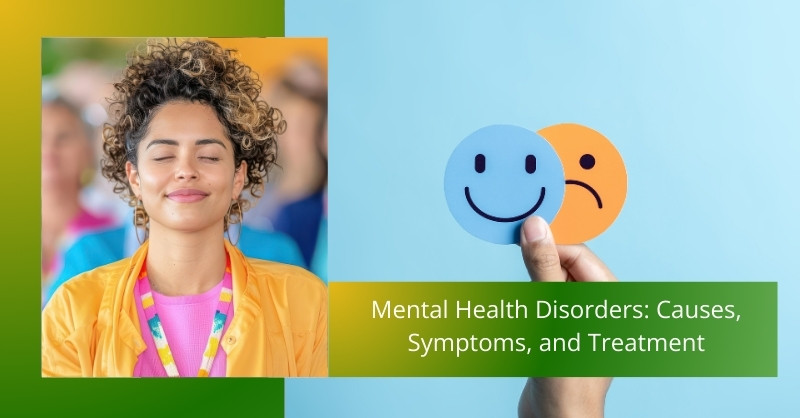What Are Mental Health Disorders?
Mental health disorders, also referred to as mental illnesses, are conditions that impact an individual’s emotional, psychological, and social well-being. These disorders range from mild conditions, like anxiety, to more severe forms, such as schizophrenia. Therefore, identifying the right diagnosis is the first crucial step toward managing these conditions effectively. In fact, early detection can lead to a significant improvement in outcomes. Additionally, seeking help from a healthcare professional can offer the guidance needed to begin treatment.
Types of Mental Health Disorders
- Anxiety Disorders
- Includes generalized anxiety disorder (GAD), panic disorder, and phobias.
- Symptoms: Excessive worry, restlessness, and physical symptoms like increased heart rate.
- Mood Disorders
- Covers major depressive disorder and bipolar disorder.
- Symptoms: Persistent feelings of sadness or dramatic mood swings.
- Psychotic Disorders
- Example: Schizophrenia.
- Symptoms: Hallucinations, delusions, and disorganized thinking.
- Eating Disorders
- Includes anorexia nervosa, bulimia nervosa, and binge-eating disorder.
- Symptoms: Obsession with weight, eating patterns, and body image.
- Post-Traumatic Stress Disorder (PTSD)
- Develops after experiencing a traumatic event.
- Symptoms: Flashbacks, nightmares, and severe anxiety.
- Obsessive-Compulsive Disorder (OCD)
- Characterized by intrusive thoughts and repetitive behaviors.
- Symptoms: Compulsions to perform certain rituals to relieve stress.
- Personality Disorders
- Includes borderline personality disorder and antisocial personality disorder.
- Symptoms: Difficulty in interpersonal relationships and self-perception.
Causes and Risk Factors
Understanding the causes of mental health disorders is critical as it can aid in prevention and treatment. Common factors include:
- Genetics: A family history of mental illness can increase risk. In addition, certain genetic factors may make an individual more susceptible to mental health disorders.
- Environment: Exposure to trauma, abuse, or neglect often plays a significant role in the development of mental health conditions.
- Biological Factors: Imbalances in brain chemistry or hormonal issues are often linked to various disorders. Moreover, changes in these biological factors may trigger or worsen symptoms.
- Lifestyle Choices: Lifestyle factors, such as substance abuse and lack of social support, can exacerbate mental health issues.
- Chronic Stress: Ongoing stressors in both personal and professional life may lead to or increase the severity of mental health disorders.
Symptoms of Mental Health Disorders

The symptoms of mental health disorders vary widely depending on the condition. However, certain common signs may include:
- Persistent sadness or irritability, which may indicate depression or anxiety disorders.
- Withdrawal from social activities, often a sign of depression or mood disorders.
- Difficulty concentrating or making decisions, which can affect daily functioning.
- Changes in appetite or sleep patterns, possibly linked to anxiety or depression.
- Intense feelings of guilt or worthlessness, which may indicate a deeper psychological condition.
- Unexplained physical symptoms, such as headaches or digestive issues, which can be stress-related.
Effective Treatment Options for Mental Health Disorders

Therapy and Counseling
Cognitive-behavioral therapy (CBT) and talk therapy are among the most effective approaches for treating mental health conditions. Additionally, therapy can help individuals better understand their thoughts and behaviors while learning healthier coping mechanisms.
Medication
For many individuals, medications like antidepressants, antipsychotics, and mood stabilizers are necessary for managing their mental health. In particular, these medications can address the underlying symptoms and help individuals function more effectively in daily life.
Lifestyle Changes
Regular exercise, a healthy diet, and mindfulness practices like yoga and meditation can contribute significantly to mental health. Additionally, making these lifestyle changes can foster positive thinking and resilience.
Support Groups
Connecting with others facing similar challenges can provide emotional support and reduce feelings of isolation. In fact, group therapy or peer-led support groups often empower individuals to share experiences and coping strategies.
Holistic Approaches
In addition to traditional therapies, alternative therapies such as acupuncture and aromatherapy can be beneficial for some individuals. Furthermore, these treatments can complement conventional mental health care and support overall wellness.
Finding Support for Mental Health Disorders
It’s crucial to remember that help is available. Many organizations offer essential support and resources, including:
- National Alliance on Mental Illness (NAMI), which provides education and advocacy for those affected by mental health disorders.
- Mental Health America (MHA), dedicated to raising awareness and providing resources.
- Local Counseling Services, which may offer therapy and support close to home.
- Crisis Hotlines, available to provide immediate help in urgent situations.



